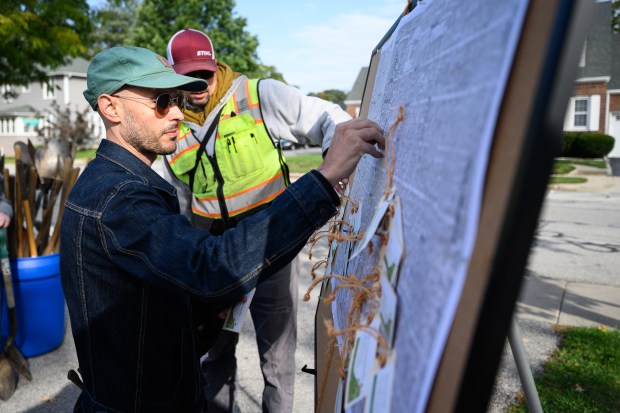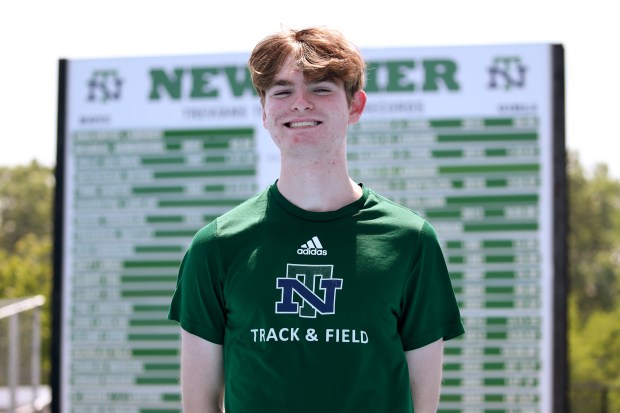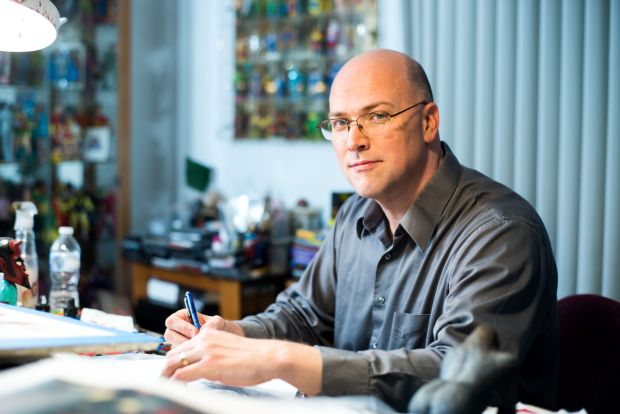Glynn Bricker leaned on a shovel as he told about the July 15 tornado that hit Valparaiso. “We ran into the basement and heard a giant thud,” he said, later learning that his crimson maple tree landed on the chimney and hit the corner of his roof.
“It was huge, like an explosion,” he said.
Bricker is still waiting for the insurance to settle his claim so he can get repairs done, hoping it will happen soon enough for him to use his furnace when it gets cold. Until the chimney is fixed, that won’t be safe.
Bricker was returning home late Saturday morning when he found neighbors Ellen Kapitan and Tyler Thorgren digging a hole on his lawn to replace the crimson maple with a heritage oak provided by the city.
“We’ve done this before. We have over 200 native plants in our yard,” Thorgren said before leading a brief tour.
Councilwoman Kapitan, D-At-large, and Thorgren were among volunteers on Saturday who planted trees to replace the ones on city property destroyed by the July tornado.
“I actually have a map in the truck I can show you,” city arborist Matt McBain said.
In all, the city lost 21 trees to that tornado, not counting ones on private property, McBain said. A total of 68 trees were affected. “That’s the beauty of having that inventory,” which includes thousands of trees.
McBain pegs the total value of these trees at more than $29 million.
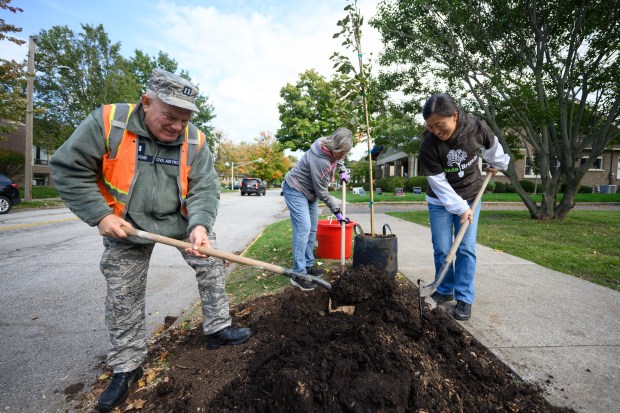
“I’m pretty lucky that I have a management staff at public works that values infrastructure,” he said, noting that trees are part of the city’s infrastructure that continues to grow in value as they age.
Byron Felde, a city arborist in Plymouth, helped Valparaiso with Saturday’s effort to plant 28 trees. He and fellow Civil Air Patrol volunteer David Straughn, of Mishawaka, hope to create a Trees Across America program next year for Civil Air Patrol kids to plant trees every year. Some of the kids helped with Valparaiso’s effort.
People talk about carbon credits, but they should give more credit to trees. “This is like a carbon sponge, all these green things here,” Straughn said.
“I haven’t planted any trees before. It’s my first one,” Straughn said. He soon ran into a problem that required McBain’s expertise.
“There was a stump down there. I didn’t have anything to do with it,” he said. The city used stump grinding when the fallen trees were removed, and the new tree had to be shifted a bit so it wasn’t right on top of the remains of the old tree.
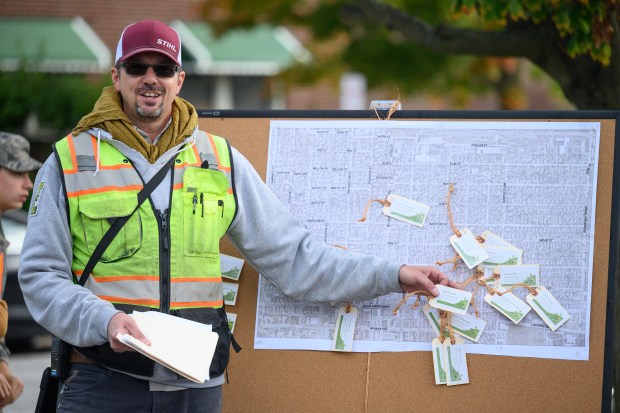
“We’re replacing a lot of trees, and a lot of places where you’ll be planting later today are right next to where a tree used to be,” McBain told the volunteers before they grabbed shovels to dig in.
“I just like being outside and doing something that’s useful for nature and humans – particularly on a nice day like this,” Straughn said.
Kapitan and Thorgren also needed McBain’s advice as they planted a tree on a slope in their yard, between the sidewalk and the street. McBain brought out a pickaxe to help clear out big roots, a tool that came in handy across the street at Bricker’s house.
When planting on a level surface, the root flare – where the roots start to come out of the tree – should be level with the surface. On a slope, McBain said, it’s best to split the difference between the high and low sides of the hole.
Valparaiso’s deputy engineer Mingyan Zhou mostly deals with the MS4 stormwater drainage program and didn’t have much experience planting trees before Saturday. She’s a Valparaiso resident, though, and wanted to help her city’s tree canopy.
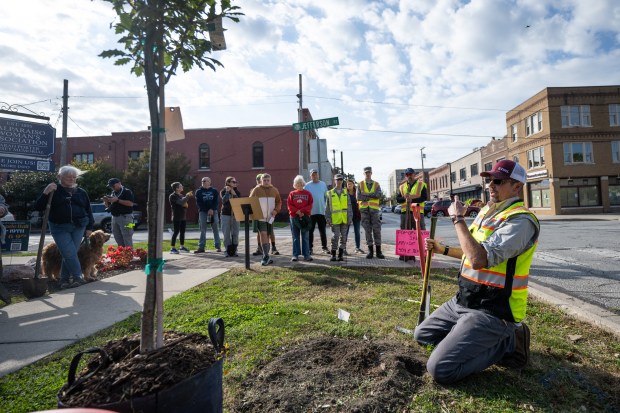
Linda Dingee, of Valparaiso, helped Zhou plant a chinkapin oak on Washington Street. Dingee is a garden club member, so she’s used to digging in the dirt. Trees for Hope is a state project for Indiana’s garden clubs, she said.
McBain spent the day driving from one tree planting to another, helping the volunteers as they ran into difficulty.
“Planting a tree properly is an absolute game-changer,” he said. “If you plant that tree properly, you won’t need to do much more for that tree for 20 years.”
Kapitan appreciated McBain’s advice as she and Thorgren planted trees Saturday. “Arborists can do anything. You guys are like magicians,” she said.
Doug Ross is a freelance reporter for the Post-Tribune.


